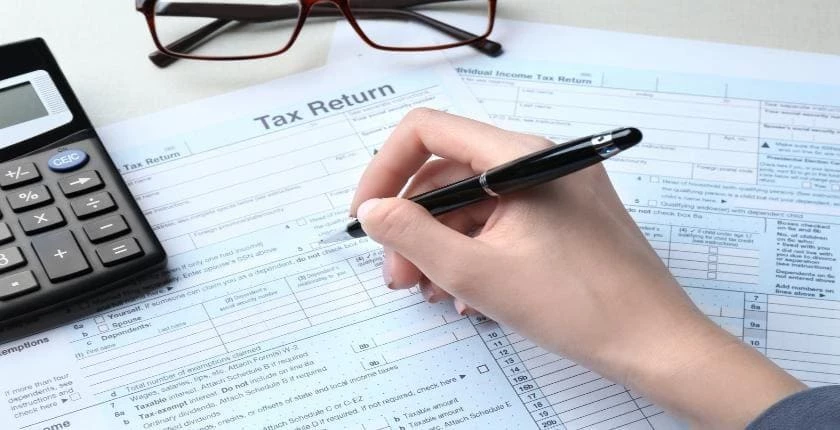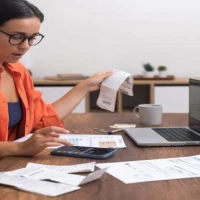
Self Assessment Tax Returns
Get in touchAt Professional Accountants, we support individuals and business owners and across the UK with expert guidance on Self Assessment Tax Returns. Whether you’re a sole trader, landlord, director, freelancer, or someone with additional income streams, accurate and timely filing is crucial to avoid HMRC penalties and ensure you’re paying only what you owe.
Our services are tailored to your situation, helping you stay compliant while maximising your allowable deductions.
What Does Self Assessment Tax Return Help Cost?
The cost of self-assessment tax return assistance ranges from £150 to over £500, depending on the complexity of your income and financial situation.
Costs are mainly influenced by factors such as the number of income sources, inclusion of rental or investment income, capital gains reporting, and any additional advisory requirements.
Contact Professional Accountants to get customised prices for managing your tax return with confidence.
Who Needs to File a Self-Assessment Tax Return?
Anyone who receives untaxed income must usually file a self-assessment tax return, which includes sole traders, landlords, company directors receiving dividends, and individuals earning over £100,000.
If you have income from savings, investments, cryptocurrency, overseas sources, or side jobs such as Airbnb or Etsy sales, you may also be required to register and file annually.
What Information Do You Need to Complete a Tax Return?
To successfully complete a Self Assessment Tax Return, you’ll need accurate records and documentation covering all sources of income and relevant expenses, including:
Personal details – National Insurance number, Unique Taxpayer Reference (UTR), and contact information.
Employment income – P60, P45, or P11D forms showing salary, tax paid, and benefits received.
Self-employment records – Details of business income, allowable expenses, and invoices or receipts.
Rental income – Statements of rent received, mortgage interest, repairs, and property-related expenses.
Dividend and investment income – Records of dividends, interest from savings, or other investment earnings.
Foreign income – Details of any income or gains earned from overseas sources.
Capital gains – Information on profits from selling property, shares, or other assets.
Pension contributions – Evidence of personal or workplace pension payments for claiming relief.
Charitable donations – Gift Aid records or receipts for tax-deductible contributions.
Student loan and child benefit details – Required for calculating any repayment or charge adjustments.
Bank interest and financial statements – Documentation of interest earned and account summaries.
Other taxable benefits – Information on company cars, healthcare benefits, or other perks.
Do Self Assessment Services Include Income, Dividends, Expenses, and Capital Gains?
Most self-assessment tax return services include the reporting of all relevant income sources, including salary, dividends, rental income, and self-employment earnings.
Capital gains—whether from selling property, shares, or other assets—can also be calculated and declared. A professional will ensure that all allowable expenses are deducted correctly and that your return reflects your actual tax liability, reducing your risk of overpaying or facing penalties.
Can You Claim Allowable Expenses to Reduce Your Tax Bill?
Claiming allowable expenses is one of the most effective ways to reduce your self-assessment tax bill. These expenses may include office supplies, travel costs, mileage, utility bills (if you work from home), marketing expenses, and subscriptions.
Landlords can claim property-related costs, and company directors may also benefit from pension contributions or use of home as office deductions.
Is Hiring a Professional for Self Assessment a Cost-Effective Way to Avoid Penalties?
Hiring a professional to handle your self-assessment tax returns is not only cost-effective, it’s often financially advantageous. Late filing, incorrect submissions, or failure to register can result in automatic penalties and interest from HMRC.
A professional ensures everything is done accurately and on time, which can save you money in the long run. Additionally, the advice they provide on allowable expenses and reliefs may result in tax savings that far exceed their service fee.
When Is the Deadline for Filing a Self Assessment Tax Return?
The deadline for online self-assessment tax returns is 31st January following the end of the tax year (which runs from 6th April to 5th April). Paper submissions are due by 31st October.
The payment of any tax owed is also due by 31st January. If you make payments on account, your first instalment is also due on that date, with a second instalment by 31st July. Missing deadlines can result in fines starting from £100, so early preparation is essential.
Do Accountants Offer Digital Filing and HMRC Correspondence on Your Behalf?
Many accountants offer complete digital filing services and can correspond with HMRC on your behalf, which includes registering for self-assessment tax returns, submitting returns, making amendments if needed, and dealing with HMRC enquiries or investigations.
Many firms use HMRC-recognised software that ensures compliance with Making Tax Digital (MTD) standards where applicable. This not only saves you time but also provides confidence that everything is handled professionally and securely.
Contact Professional Accountants for a consultation on getting self-assessment tax returns services.
Get in touch
Skip to
Gallery




